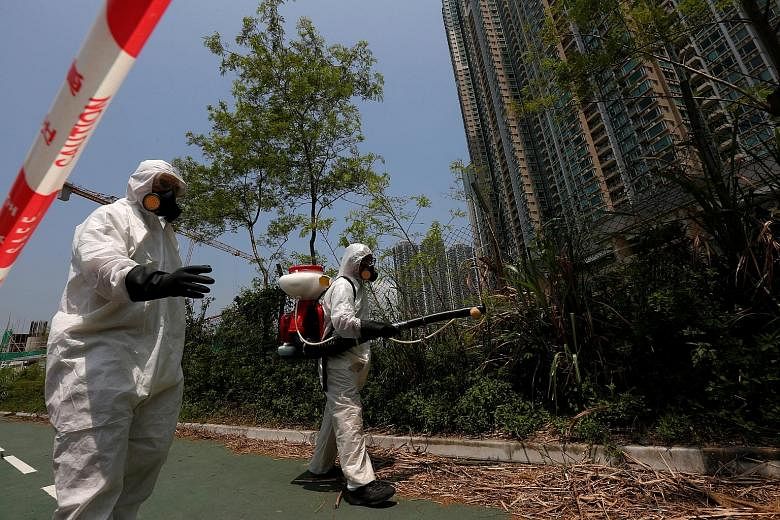GENEVA • The World Health Organisation (WHO) has reaffirmed its previous advice that there should be no general restrictions on travel and trade with countries where there is transmission of the Zika virus.
Yesterday, WHO also urged its director-general to develop an appropriate response plan "to provide longer-term coordination and accountability for ensuring an effective response" to the outbreak.
WHO said Zika is still a public health emergency, reiterating its February position. Seventy countries and territories have reported local mosquito-borne Zika spread, with Brazil by far the hardest hit.
Speaking after a meeting of the WHO's emergency committee on Zika, chairman David Heymann said the disease continued to constitute an international health emergency although the risk to people attending the Paralympics in Rio de Janeiro this month is low.
"This extraordinary event is rapidly becoming, unfortunately, an ordinary event," he told a news conference. "And Zika is beginning to spread, continuing to cause outbreaks in many countries around the world."
Mr Peter Salama, WHO's head of disease emergencies and outbreaks, said the virus was likely to keep spreading.
Florida officials on Thursday said they have trapped the first mosquitoes that tested positive for Zika in the Miami area, further confirming reports of local US transmission of the virus.
There have been 49 cases of Zika in people believed to have contracted the virus in a small area of Miami, said Mr Salama, when asked about Florida and the risk of spread elsewhere in the United States.
"In terms of further spread, yes, a risk. As we said, the US is no exception," he said. "Wherever there is a competent vector, in this case the Aedes aegypti (mosquito), there is a risk that the virus will spread."
Zika infections in pregnant women have been shown to cause microcephaly - a severe birth defect in which the head and brain are undersized - as well as other brain abnormalities. Brazil has confirmed more than 1,800 cases of microcephaly in the past year.
Although there is no vaccine and scientists do not yet know how to stop Zika, they foresaw a low risk of the virus spreading at the Olympic Games last month in Brazil, the country hardest hit by the virus, during the winter season there.
Nobody returning from the Games, neither travellers nor athletes, has reported Zika symptoms, although most cases of the disease are asymptomatic, Mr Salama said.
"Certainly we feel fairly confident that the risk assessment that there would be no significant increased transmission due to the Olympics is very much on track," he said.
REUTERS, AGENCE FRANCE-PRESSE

